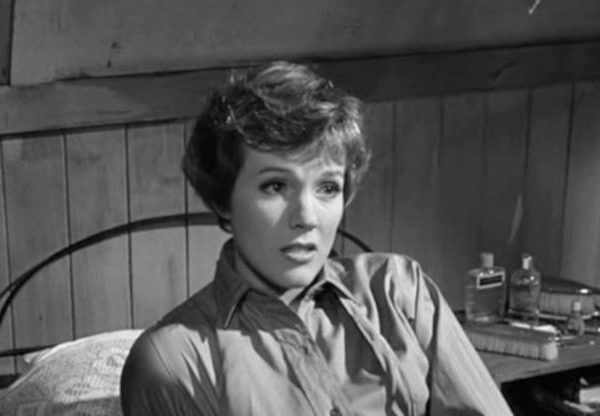As an actor in 2021, you know that an online presence is non-negotiable — you need a platform to promote yourself and your work. Your social media is solid, so now it’s time for the next step: figuring out how to build an actor website.
Don’t panic if the phrase “web development” makes your brain go blank — you don’t need to be a technological wizard or a design genius to make your own website. Forget hard coding; with the wealth of website builders on the market, you can get a gorgeous site up and running in a matter of hours.
Top image courtesy of Anthony Shkraba
1. Buy a Domain Name
If you don’t already have one, it’s time to buy a domain for your actor website. Ideally, you’ll be able to find the .com with your first name and last name: jennifersmith.com, bobjones.com. However, that might not be possible, especially if you have a common name.
Can’t find your first choice? Try these domain-name alternatives:
- Add your middle initial or middle name (jenniferksmith.com)
- Try a shorter version of your first name (jensmith.com instead of jennifersmith.com)
- Try your first name and the initial of your last name, or vice versa (jens.com or jsmith.com)
- Add a hyphen or a dot between your first and last name (jen.smith.com, jen-smith.com)
- Add the word “actor” after your name (jensmithactor.com)
- Add “official” to your name (jensmithofficial.com or officialjensmith.com)
Don’t panic if your preferred URL is taken! Google is smart enough to figure out who you are — plus, we’ll cover ways to differentiate your site in the Search Engine Optimization section below.
Where should you buy a domain? We love Namecheap.com; it’s reliable and cheaper than most providers. Plus, every URL includes free domain privacy, which conceals your private contact information and gives you more control. Most domains are less than $10; compare that to GoDaddy, where domains often renew at $20 per year, plus $10 for privacy.
Other places to buy domains include GoDaddy, Google Domains, and Network Solutions. Before you buy a domain, keep in mind that some hosting plans include a free domain with your purchase. It’s not a huge savings, but every penny counts when you’re just getting started as an actor.
2. Choose Hosting and a Platform for Your Actor Website
When you’re building an actor website, you need a place to host the site. That’s where web hosting comes in — it’s a service that provides server space for your website. Usually, you’ll pay a monthly or annual fee to rent the space.
There are two ways to go about choosing a web-hosting service:
- Website builder with included hosting (Squarespace, Wix, Google Sites): These services offer hosting and user-friendly website builders in one convenient package. They’re a good choice if you want a fast, easy way to make a beautiful website — you don’t need coding or design skills. For busy actors, this is the most popular choice.
- Standard web hosting with WordPress: If you’re on a strict budget or you want more control over the look of your site, this is a good option. WordPress is a free content management system that enables you to download themes and build your website. It has a steeper learning curve, but it’s the cheapest option.
How to Make an Actor Website with a Website Builder
A website builder like Squarespace is the easiest way to build an actor website. Most builders come with design templates — all you need to do is edit the content. It’s fast, easy, and you can make a professional-looking website quickly. Expect to pay about $10-15 per month for these services.
You’ll be in good company; stars like Laura Benanti and Sierra Boggess have actor websites made with Squarespace. Of course, that’s just one option — many actors also like the Wix and Weebly website builders.
With this method, building an actor website is simple:
- Pick a theme or a template
- Replace placeholder text with your own
- Upload photos, videos, audio files, and your resume
- Publish the site
A note about themes and templates: when you’re searching for a good option, phrases like “actress website template” and “actor website design” probably won’t yield many results. You’ll need to do it the hard way and scroll through different options until you find one that works for headshots, videos, etc.
Does this all sound confusing? This video offers a good introduction to Squarespace and Wix — click through to see how each platform looks and feels:
There’s no need to commit right away; Squarespace, Wix, and Weebly all have free versions, so you can play around with the builder and figure out which one is best for you. If you’re seriously broke, you can even use the service to make a free actor website. The domain will look something like “jensmith.wix.com,” but it’s better than nothing!
Building an Actor Website with Hosting and WordPress
If you want a more in-depth website building experience — or if you’re on a tight budget — WordPress is the way to go. It’s the most common content-management system in the world.
First, you’ll need to pick a hosting plan. For an actor website, pretty much any plan will do. Unless you have a huge following — as in, you expect more than 50,000 people to come to your website each month — the cheapest hosting plan is just fine. Usually, you’ll pay less than $5 per month.
Some popular hosting providers:
Make sure to read the terms; many companies reel you in with a cheap introductory deal, and then jack up the prices later. If you can, pay for a year of hosting up front to lock in the cheaper price.
Once you have hosting, you’ll need to connect your domain and set up WordPress. The process varies by hosting provider — the company’s support website will provide step-by-step tutorials. (See how it works on GoDaddy) When that’s complete, you’ll be able to log into the WordPress interface to build the website. Then, all you have to do is choose a theme, and start adding content.
Want to know what it’s like to use WordPress? This video offers a good introduction:
3. Create an Actor-Oriented Website Structure
The website structure is simply the pages you want on the site. An acting website should be simple; that way, visitors can find exactly what they need.
Must-have pages for an actor website
- Home – Create a fantastic first impression with a headshot, a quote from a review, a short intro, your reel, and a list of upcoming performances.
- About/Bio – Discuss your experience as an actor. This is a good place to link out to specific projects or performances you’re proud of.
- Acting resume – Add it as a text version, and include a downloadable PDF link.
- Media – This a great place to showcase your acting work with YouTube clips, audio files of your singing, headshots, and production photos (make sure you have permission and give photo credit).
- Contact – Create a contact form, or simply list your email address. While you’re at it, include links to all of your acting-related social media profiles.
- News/Schedule*
*Be wary of adding a News or Schedule page to your actor website. You should only include one if a) you have lots of casting news to announce and b) you have the time and inclination to update the page. There is nothing worse than visiting an “Upcoming Engagements” page on an actor’s website and realizing the most recent performance happened in 2017!
A better option is to add your upcoming performances to the home page. That way, they’re visible right away when someone comes to the site. Alternatively, add a statement that says “Check out my Facebook page to find out about my upcoming performances.”
4. Optimize Your Actor Website for Search Engines
You have a URL, and you’ve set up your acting website — now, it’s time to make sure the site shows up in search results. This process is called search engine optimization, or SEO.
Imagine that someone wants to find your actor website. What would they search for? Most likely, they’ll search for your name; if that doesn’t work, they’ll probably add “actor” to the search.
Keep that behavior in mind — it will inform your SEO strategy.
Before you start optimizing, come up a list of keywords that people might use to find your acting website. Some good options are:
- Your name
- Your city
- Performance specialties: actor, singer, Tony-nominated actor, triple threat, character actor, soprano, baritone
- Type of acting: Musical theater, television, film, stage, improv
Then, use your list to create key phrases to pair with your name:
- Chicago-based actress
- Film and television actor
- Comedic actor
- Classically trained soprano
- Musical theater actor
- Actor, singer, and dancer
Now, you’ll need to optimize each page around your name and one of your keyword phrases. For your home page, use the most relevant phrase. Place your name in the following places on the page, and work the keyword phrase in as often as you can do naturally:
- Page title (also called the H1)
- Subheadings (called H2 and H3)
- First paragraph of text (ideally, in the first sentence)
- Page text
- The filename of the largest image
- Meta description
Don’t worry if you can’t hit all of these marks — get your name and keyword in there a few times, and Google will be able to put the pieces together.
Tips for a well-optimized actor website:
- If you have a common name, add plenty of text to the home page. Break it up with subheaders, and use your name and keyword naturally throughout. It’s fine to use variations of the words: Chicago-based actress, actress in Chicago, Chicago acting credits, upcoming Chicago acting gigs, etc.
- The images and text that are closest to the top of the page are most relevant to Google — make sure they contain your name and keyword.
- Resize headshots and production photos so they’re smaller than 100KB. Large image files make pages load slowly, which Google hates.
The final step in SEO is to link all of your social media profiles. This helps Google establish who you are and distinguish you from other people with the same name. Most website builders enable you to add icons for Twitter, LinkedIn, Instagram, Facebook, TikTok, YouTube, and Pinterest. You can also add widgets that pull in your posts or tweets and display them on your website.
Which website builder is best for actors?
Squarespace and Wix are the best website builders for actors. Squarespace makes it easier to launch a beautiful, professional actor website in a short amount of time; just pick a theme, replace the text and photos, and you’re all set. Wix gives you more control, which is helpful if you know exactly what you want.
Do actors need websites?
In 2021, every actor needs a website. It’s the hub of your internet existence — a digital portfolio where you can show off all of your best work. A sleek, comprehensive website shows that you are a professional, and that you are serious about your career.
Social media is wonderful, but it is fleeting by nature. Plus, agents and casting directors don’t have time to dig through your old Instagram posts to find a clip of that great play you did two years ago. With an actor website, you can point people to a single URL where they can find all of your most impressive work. Put your URL on your resume, email signature, invitations, and in programs, and you might be surprised at how much exposure it brings.
As an actor, a website is the one chance you have to control the narrative of — you decide how to portray yourself. You decide what clips best represent your talent, skill, and type.
Is Squarespace good for actor websites?
Squarespace is a great choice for actor websites. It’s affordable and easy to use, so you can create a website even if you’re a complete beginner.
Will casting directors look at my website?
Some casting directors look at actor websites, while others don’t. There’s no way to tell, but it certainly can’t hurt.
Imagine that your resume and photo come across a casting director’s desk — she notices your website URL and clicks through. Your best performances are right there on the homepage, so she clicks the play button. Suddenly, your work is being seen by someone who actually has the power to cast you.
The acting world is small — you never know who might see your website.
What makes a good actor website?
A good actor website gives a clear picture of who you are as a performer. It includes video clips, recordings, and photos that showcase the unique talent and energy you bring to the table. When someone clicks through your site, they should get a sense of your vibe, your abilities, and the special something that makes you irresistible on stage or screen. Learning how to build an actor website is your chance to bring your skills to the world.




